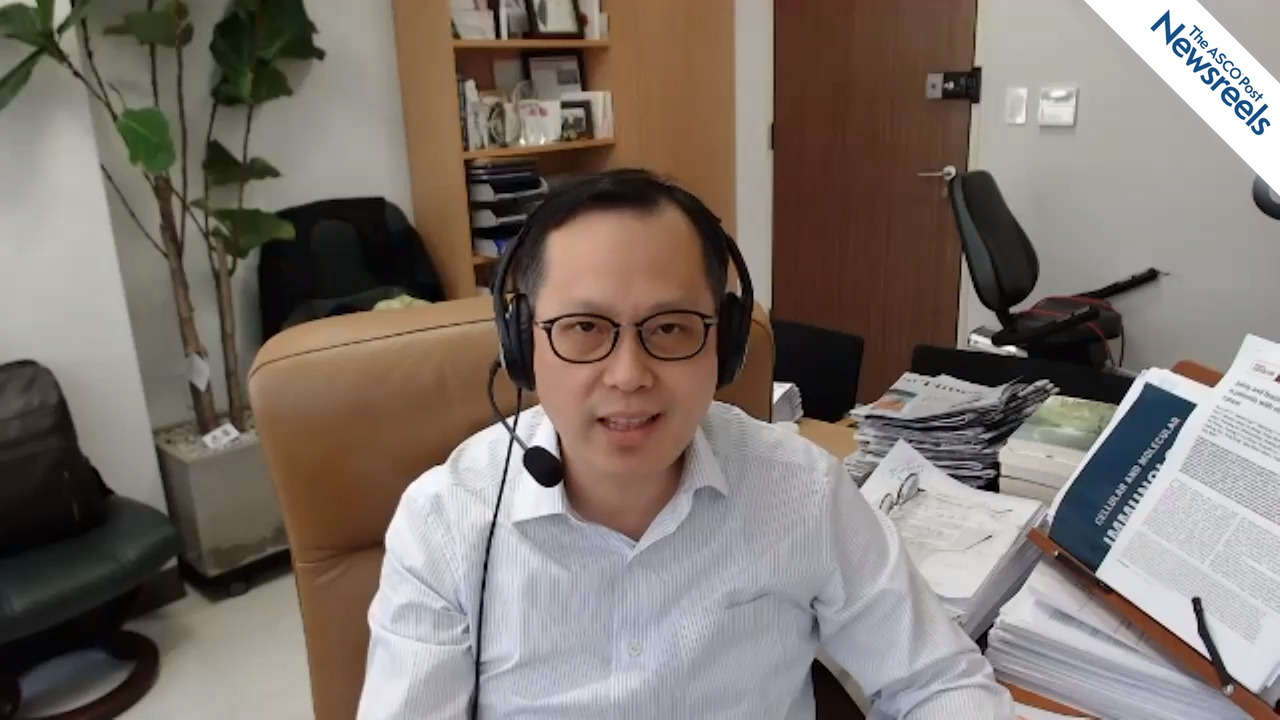Qi Liu, PhD, on NSCLC: Pneumonitis, Immunotherapy, and Chemotherapy
AACR Virtual Annual Meeting 2020 I
Qi Liu, PhD, of the U.S. Food and Drug Administration, discusses data that suggest that patients with advanced non–small cell lung cancer who had a past medical history of pneumonitis were more likely to experience treatment-associated pneumonitis in response to immune checkpoint inhibitors or chemotherapy (Abstract CT086).
The ASCO Post Staff
Edward B. Garon, MD, of the University of California, Los Angeles David Geffen School of Medicine, discusses KEYNOTE-189 trial findings that showed adding pembrolizumab to pemetrexed plus platinum—which previously was found to improve overall and progression-free survival—is also safe and has manageable toxicity in long-term use for patients with metastatic nonsquamous non–small cell lung cancer (Abstract CT085).
The ASCO Post Staff
Andrew X. Zhu, MD, PhD, of Massachusetts General Hospital, discusses an exploratory analysis seeking to identify tumor-based molecular biomarkers that may be associated with clinical response or resistance to the combination treatment of atezolizumab and bevacizumab in patients with advanced hepatocellular carcinoma (Abstract CT044).
The ASCO Post Staff
Byoung Chul Cho, MD, PhD, of Yonsei Cancer Center and Severance Hospital, discusses the STK11 and KEAP1 mutations in non–small cell lung cancers, and their relationship to the efficacy of pembrolizumab monotherapy vs platinum-based chemotherapy as first-line treatment for PD-L1–positive advanced disease (Abstract CT084).
The ASCO Post Staff
Edward B. Garon, MD, of the University of California, Los Angeles, David Geffen School of Medicine, discusses results from a small study in METex14-mutated advanced non–small cell lung cancer and brain metastases. The trial suggested capmatinib showed antitumor activity in the brain, regardless of prior therapy, and a manageable safety profile (Abstract CT082).
The ASCO Post Staff
Steven J. O’Day, MD, of the John Wayne Cancer Institute, discusses phase II results for the combination of pembrolizumab with a novel innate immune activator, Imprime PGG, as second-line treatment for patients with metastatic triple-negative breast cancer ( Abstract CT073).





